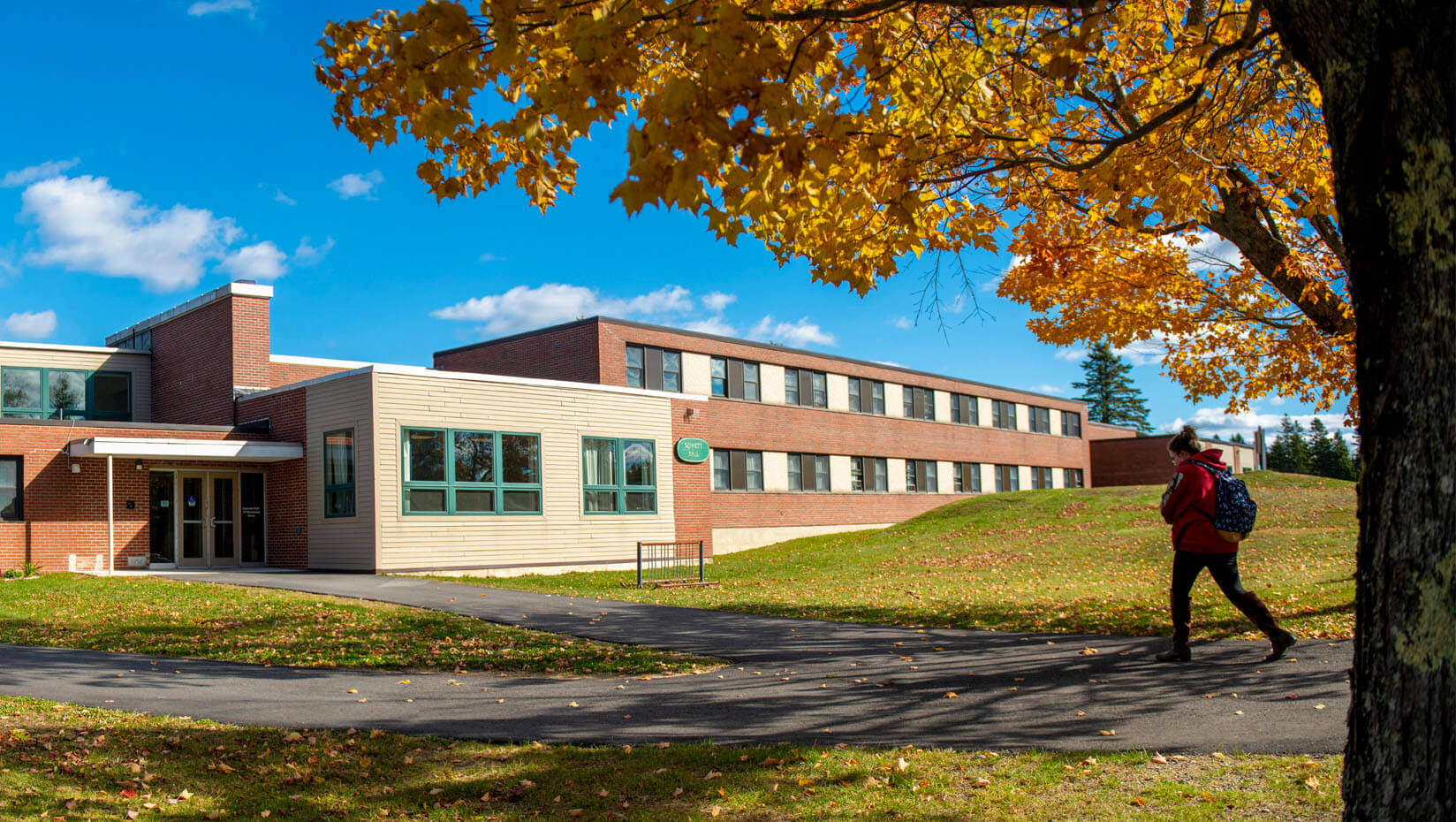
Ranco and colleagues to bolster WaYS program for Native students, bring it to UMM
Editor’s note: story updated Oct. 28.
Darren Ranco plans to bolster one of the Wabanaki Center’s signature programs to increase Native American student retention and success in college and bring it to the University of Maine at Machias.
The U.S. Department of Agriculture awarded Ranco, chair of Native American Programs at the University of Maine, and his colleagues, $283,164 to expand the Wabanaki Youth in Science (WaYS) Program. The program attracts Native students to STEM and FANH, or Food, Agriculture, Natural Sciences and Human Sciences, fields and helps retain them in secondary and post-secondary studies.
The new initiative to enhance WaYS, called New Beginning for Tribal Students (NBTS), will bring the educational program to UMM and create a new mentorship program called WaYS Ambassadors, in which advanced Native American graduate and undergraduate students will guide peers at the Machias and Orono campuses through research projects and professional development activities.
After three years of implementation, Ranco and his colleagues hope the NBTS initiative will help increase Native American student enrollment by 5%, or seven students, at UMaine and by 15%, or five students, at UMM. They also aim to boost graduation rates for Native American students by 5%, or seven students, at UMaine and 10%, or three students, at UMM.
“This is a great opportunity for the University of Maine System to participate in this new funding opportunity from USDA and support Native American student success at both UMaine and UMM,” says Ranco, also an associate professor of anthropology and faculty member in the Senator George J. Mitchell Center for Sustainability Solutions.
The WaYS program was created in 2013 to promote STEM fields and Native American environmental stewardship to middle and high school students. They participate in week-long summer camps that offer various hands-on learning activities, such as weaving baskets receiving instruction about brown ash trees, examining medical and edible saltwater plants, and more. The program also offers miniature camps throughout the year that offer hiking, foraging, fire building, ice fishing, archaeology, shelter-building, leadership training and other educational ventures.
Ranco and his colleagues expanded WaYS in 2017 to retain and support post-secondary Native American students at UMaine, particularly by integrating indigenous culture and science in college-level curricula. Cultural Knowledge Keepers help incorporate both by co-teaching courses with faculty and helping frame the instruction, which Ranco says can improve learning outcomes for Native and non-Native students.
By fostering cultural science, community connection and mentoring in coursework, the WaYS program can help eliminate barriers to success in post-secondary education for Native American students, according to Ranco.
To date, 250–300 Native American K–12 students and 40 Native American and 400 non-Native American college students have participated in WaYS programming at UMaine.
The inclusion of WaYS Ambassadors through the NBTS initiative will build on program goals by providing peer mentorship to youth on- and off-campus. Ambassadors, who will receive an annual stipend of $1,500 during the course of their service, will engage with tribal communities by participating in their programs, and join various university activities such as roundtables and faculty and student research presentations, according to Ranco. UMaine and UMM will each receive five ambassadors, and one part-time employee will coordinate outreach and engagement opportunities.
Ranco and his colleagues will kick off the implementation of WaYS at UMM by first incorporating it in the education class EDU 328 — Environmental Literacy. Recruitment for the course will focus on Passamaquoddy Tribal citizens working toward or lapsing in their education degrees. According to the UMaine Native American Programs director, including both Wabanaki cultural science and a cultural knowledge keeper can improve “both the ‘interest in degree completion’ and ‘plans for a career in the tribal community’” among Native American students.
Washington County, where Machias and UMaine’s titular regional campus is located, houses the largest percentage of Native Americans in Maine who are located primarily on the Passamaquoddy Tribal reservations of Indian Township and Pleasant Point. The NBTS initiative allows WaYS to provide the support to help many Downeast Native American youth advance in their education.
“Adding mentoring support and bringing indigenous Wabanaki science into more educational contexts is a great benefit to Native students, especially Passamaquoddy students at UMM — also, our research shows bringing Native and non-Native knowledge systems and communities together greatly benefits everyone, Native and non-Native alike.” Ranco says.
The NBTS initiative and WaYS program join several initiatives from UMaine to enhance collaboration with Native American Communities. UMaine in previous years signed a Memorandum of Understanding with the Penobscot Nation to co-manage university holdings of Penobscot cultural heritage items, incorporated bilingual signs to identify campus buildings and roads in both Penobscot and English, and created a tuition waiver program for Native American students.
Contact: Marcus Wolf, 207.581.3721; marcus.wolf@maine.edu
